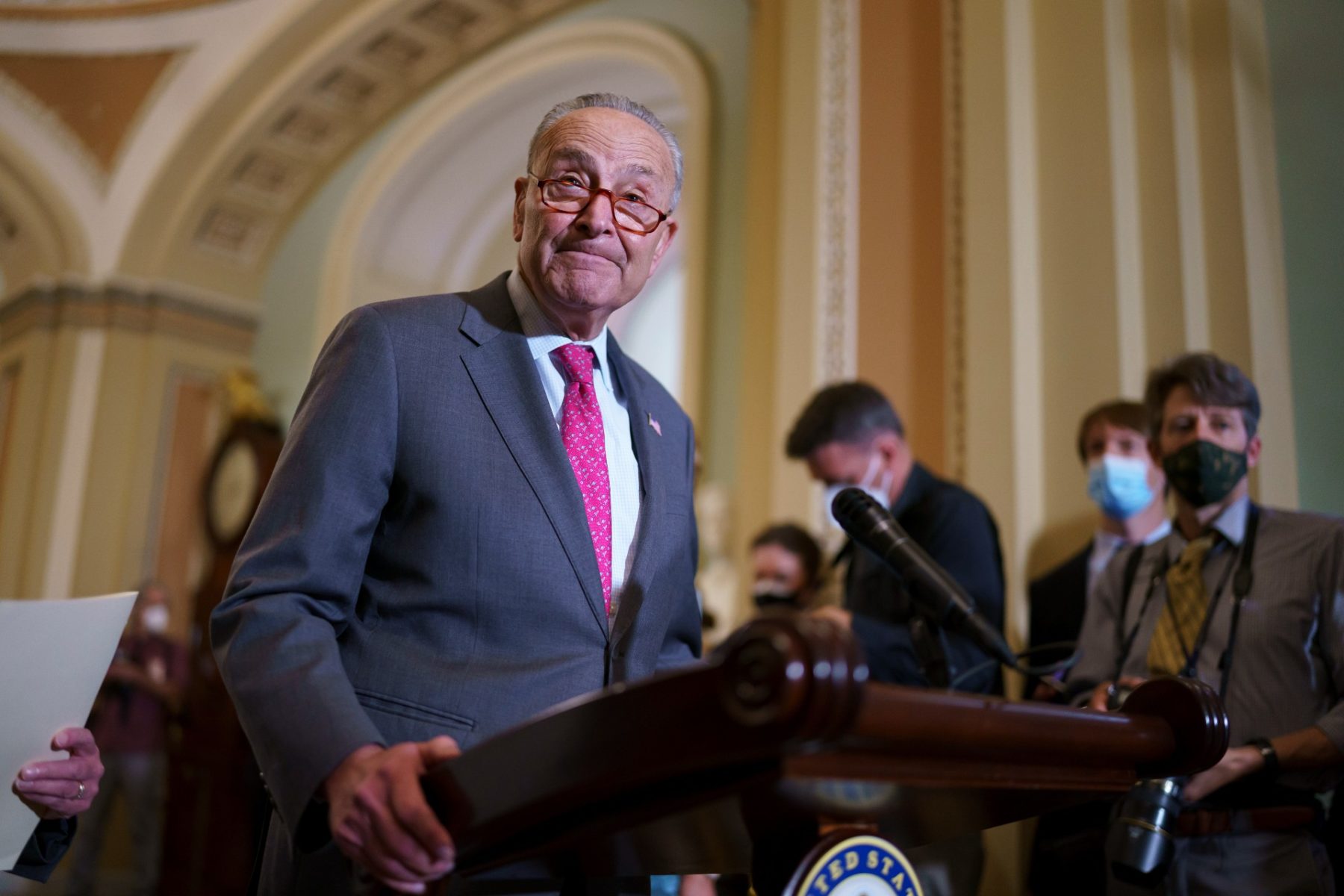
Democratic Senate leaders are continuing to chew up time in the legislative calendar by negotiating with Joe Manchin and Kyrsten Sinema on elements of their budget reconciliation plan instead of bringing the $3.5-trillion-over-10-years bill, already a compromise with the White House and progressives in Congress, to a vote.
Much media focus is on the motivations of Manchin and Sinema, as well as groups of House Democrats holding out on the reconciliation plan. But it’s worth looking back at the past several election cycles, and how Democrats find themselves in such a tense 50-50 party-aligned split in the Senate.
Over the past decade, with Democratic candidates losing several Senate contests in squeakers, the more populist economic message that the party has belatedly embraced this year could have worked to increase voter turnout and hold on to valuable seats for passing Democratic budget programs.
Chuck Schumer became majority leader after dual Democratic wins in the Georgia runoff elections in January, which were by far the most expensive congressional elections in history, with the Senate hanging in the balance. Many observers attributed the unlikely victories to the populist economic themes of the Ossoff and Warnock campaigns: a messaging focus on $2,000 pandemic relief checks, as well as a pledge to support a “public option” health care plan.
In their focus on lowering health care costs and rebuilding the social safety net, the Georgia campaigns’ economic message was reminiscent of the People’s Budget, a proposal initially introduced by the the Congressional Progressive Caucus in 2011 and regularly in years thereafter. Like the Biden administration’s Build Back Better Act that is now stuck in Congress, the plan would have increased taxes on the wealthy and corporations to make substantial investments in infrastructure, green-job creation in renewable energy, and the expansion of powerful tax credits like the child tax credit and EITC.
Warnock and Ossoff’s pitches for $2,000 stimulus checks followed investments in local field organizing by the Democratic party and outside groups, and years of voter registration efforts that helped keep turnout in the January 2021 special election at 90% of what it was in the general election—an extremely high level, with especially strong turnout among African-American voters.
Until the pandemic hit, Democratic leaders were not supporting proposals like stimulus checks, and they still have not moved to develop legislation for a more-affordable public Medicare option for health insurance coverage.
Since the 2012 election cycle, Democrats have lost nine Senate contests to Republicans by fewer than five percentage points, including three races in 2014 where incumbent Democrats lost their seats in the general election. Counting a fourth race for an open Iowa Senate seat in 2014, where Republican Joni Ernst edged out Bruce Braley by about eight points, Democrats lost four Senate seats in 2014 by a total of only 185,515 votes. Mitch McConnell needed a net gain of six seats that cycle to retake control of the Senate, and the GOP took nine. That year, progressives’ budget plan called for reducing military spending, enacting a financial transaction tax, eliminating fossil fuel industry subsidies, and standing up a public healthcare option, among other measures. At least five other Senate races in cycles from 2014 through 2020 could have been won if the Democrats had increased their vote count by about five or six percent of registered voters in each state.
On the House side, the 2020 cycle was a setback for Democrats, with no incumbent Republicans ousted and 13 of Speaker Pelosi’s members defeated, amounting to a net loss of 11 seats and leaving the chamber at 220 Democrats to 212 Republicans, with three vacant seats, of which two were occupied by Democrats—likely standing at only a five-vote margin for a bare majority.
Rep. Pramila Jayapal (D-Wash.), the chair of the Congressional Progressive Caucus, said this past weekend, in making the case for the Biden administration’s Build Back Better agenda, “I would argue that had Democrats done some of these things 10 years ago, we would have a lot of the working-class voters that are white in Republican districts.”
For more coverage of Big Money spending in elections, get the free Sludge newsletter.
